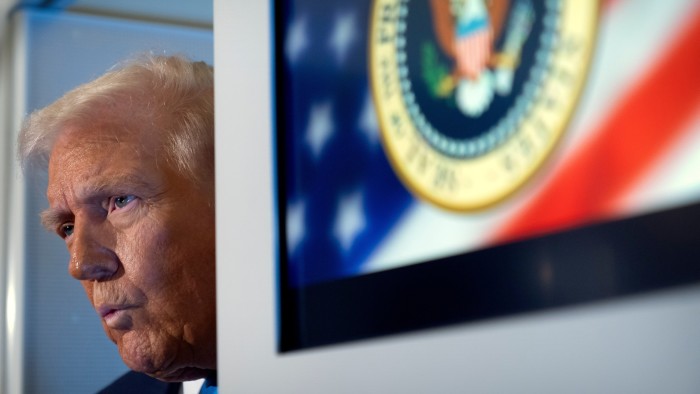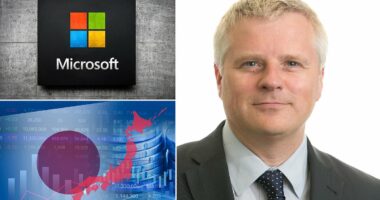Share this @internewscast.com
Subscribe for free to our White House Watch newsletter for the latest updates.
In a surprising turn, the Trump administration has settled over $25 million in overdue fees owed to the World Trade Organization (WTO), despite its previous criticisms of the organization. This information comes from emails obtained by the Financial Times.
The payment was made eight months after the administration had announced a freeze on its annual contributions. This freeze was part of a broader review of U.S. payments to various international bodies, including the WTO and the Organization for Economic Cooperation and Development (OECD).
For 2024, the United States was expected to cover 11% of the WTO’s budget, amounting to 205 million Swiss francs ($257 million). Last December, the WTO’s annual report indicated that the U.S. contribution would be 23.2 million Swiss francs, roughly $25.7 million at that time.
In March, the WTO had placed the U.S. under “administrative measures” due to its failure to pay the 2024 contributions. This classification triggers a series of escalating penalties for members who do not fulfill their financial obligations.
The resolution of this issue was discreetly communicated to WTO staff through an internal email, which indicated that the U.S. was no longer under these “administrative measures,” according to the Financial Times.
A Trump administration official confirmed the payment, but declined to comment further or specify the amount transferred. “The assessed contributions for 2024 to the WTO have been paid,” the official said. The WTO secretariat declined to comment.
As recently as last month the White House derided the WTO as “toothless”, accusing it of aiding and abetting “global trade cheating by the Chinese Communist party”. But it later retracted the statement without explanation.
Despite continuing to neuter the WTO’s ability to enforce global trade rules by refusing to supply judges to the appellate body, its main enforcement mechanism, diplomats said the US was continuing to engage with the technical work of the WTO at an administrative level.
Trade experts said the decision to quietly settle its account, while welcome, represented a decision to engage in a way that worked to Washington’s advantage rather than a radical shift in approach.
“Washington’s transfer to the WTO isn’t a gesture of faith — it’s a feeding tube. The aim isn’t revival, it’s control,” said Simon Evenett, professor of geopolitics and strategy at IMD business school in Lausanne, Switzerland.
George Riddell, managing director of Goyder, a trade consultancy, added that the US contributions would ease some of the WTO’s immediate budgetary constraints, which had led it to scale back activities and technical assistance to developing country governments.
“The US government’s position on the WTO remains nuanced,” he said, noting that recent trade deals between President Donald Trump’s administration and south-east Asian countries had included conditions requiring them to back WTO agreements.
“Nonetheless, this is unlikely to mark a wholesale support of the WTO, where discussions on reforming the organisation remain fraught ahead of its scheduled ministerial [conference] in March 2026,” Riddell added.







